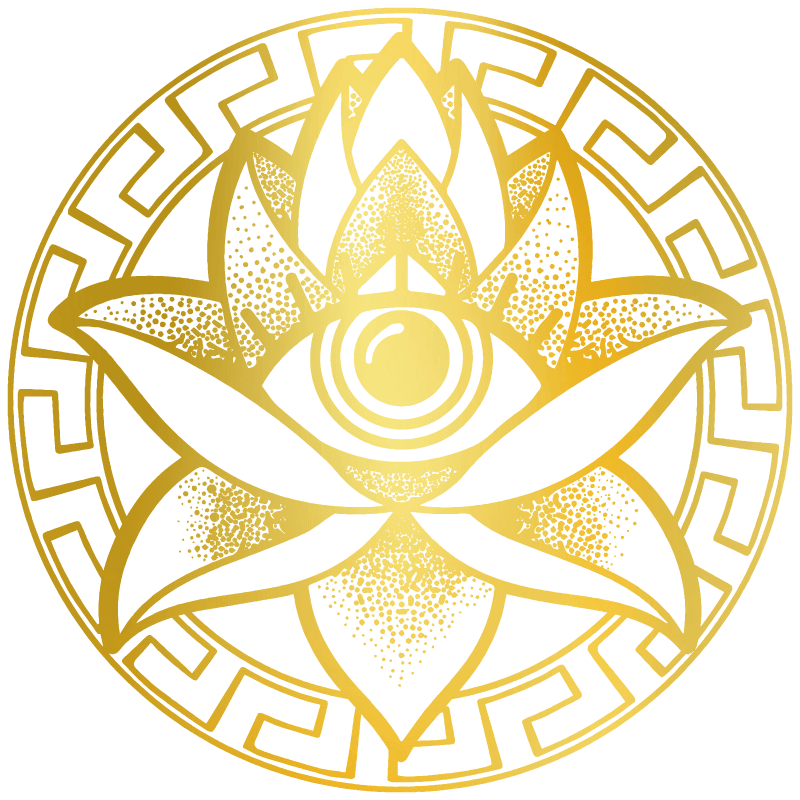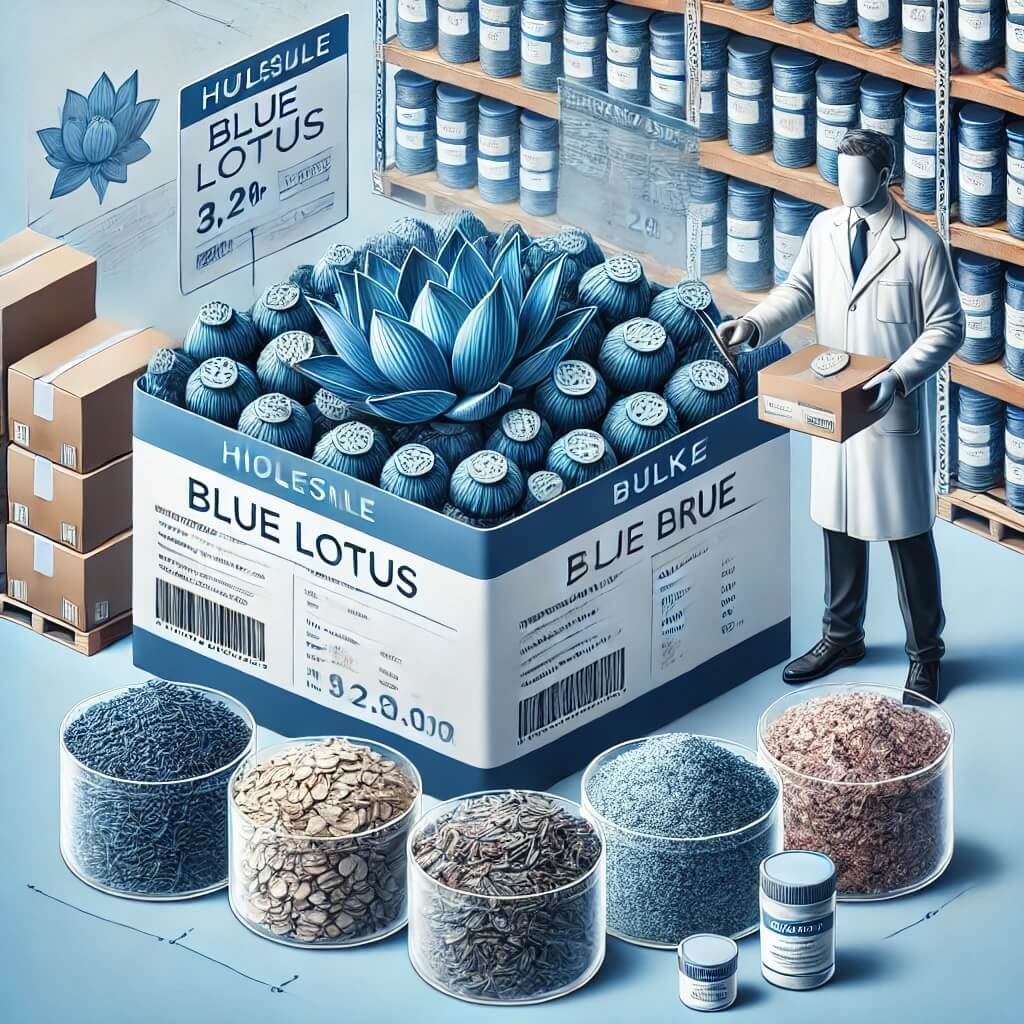As the popularity of Blue Lotus (Nymphaea caerulea) continues to rise in wellness, herbal remedies, and spiritual practices, many individuals and businesses are considering purchasing Blue Lotus in bulk. Whether you’re sourcing it for resale, product development, or personal use, buying Blue Lotus in large quantities requires careful consideration to ensure you’re getting a quality product at a fair price. This guide will walk you through the essential factors to consider when buying Blue Lotus in bulk.
1. Determine the Purpose of Your Bulk Purchase
Before diving into bulk purchasing, it’s important to clarify why you need large quantities of Blue Lotus. Different uses may require different forms of the plant, such as:
• Tea and Tinctures: If you plan to use Blue Lotus for teas or tinctures, you’ll likely want dried flowers or loose leaves.
• Cosmetic Products: For skincare or cosmetic uses, you may need Blue Lotus oil or extracts, which are processed differently from the raw plant.
• Resale: If you’re reselling Blue Lotus products, you’ll want to ensure the quality and purity of the plant to maintain customer trust.
Knowing your intended use will help guide your purchasing decisions and ensure you buy the right form of Blue Lotus for your needs.
2. Research Vendors and Suppliers
Not all suppliers offer the same quality or sourcing practices, so it’s critical to do your homework. Here’s what to look for when choosing a bulk supplier:
• Reputation: Look for vendors with a good track record and positive reviews. You can often find reliable feedback from previous buyers on forums, social media, or online reviews.
• Transparency: A reputable vendor should provide clear information about where and how their Blue Lotus is sourced. Look for suppliers that offer details about cultivation, harvesting, and processing practices.
• Certifications: Organic or sustainably sourced certifications can provide additional peace of mind, ensuring that the Blue Lotus was grown without harmful chemicals and with respect for the environment.
3. Consider the Form of Blue Lotus
Blue Lotus is available in several forms, each with its own benefits and considerations:
• Dried Flowers: These are often used for teas and herbal remedies. When buying dried flowers, ensure that the supplier offers whole, unbroken flowers, as this is a sign of freshness and quality.
• Extracts: Blue Lotus extracts, including tinctures and powders, are more concentrated forms. If you need a potent product for medicinal or cosmetic purposes, extracts may be the best option.
• Oils: For use in skincare or aromatherapy, Blue Lotus essential oil is a popular choice. Ensure that you are purchasing 100% pure Blue Lotus oil and not a blend with other oils unless that is what you need for your product.
4. Quality and Purity Are Key
When buying in bulk, ensuring the quality and purity of the Blue Lotus you’re purchasing is critical. Here are some factors to check:
• Color and Aroma: High-quality Blue Lotus should have a vibrant blue-purple hue (if buying flowers) and a pleasant, slightly sweet aroma. Faded color or a lack of scent can indicate poor quality or aging.
• No Additives or Fillers: Ensure that your Blue Lotus products are free from artificial additives, preservatives, or fillers, which can diminish the purity and effectiveness of the product.
• Lab Testing: Look for suppliers that provide third-party lab testing to confirm the purity and potency of their products. This is particularly important if you plan to use the Blue Lotus for health and wellness purposes.
5. Understand the Legal Status
While Blue Lotus is legal in most countries, it’s important to understand the local laws and regulations regarding its use. In the United States, Blue Lotus is not a controlled substance and is widely available as an herbal supplement. However, it cannot be marketed for human consumption without FDA approval, so many vendors label it for aromatherapy or ceremonial use instead. Be sure to verify the legal status of Blue Lotus in your country or state, particularly if you plan to resell it.
6. Price Comparison and Bulk Discounts
Buying in bulk often comes with the benefit of price discounts, but not all suppliers offer the same rates. When comparing prices, consider the following:
• Unit Price: Calculate the cost per gram, ounce, or kilogram to compare bulk offers accurately.
• Shipping Costs: Bulk orders may come with high shipping fees, especially if imported internationally. Factor this into your total cost.
• Minimum Order Quantities: Some suppliers have a minimum order quantity for bulk purchases. Make sure the minimum fits your needs and budget.
Don’t be afraid to negotiate bulk discounts with your supplier, especially if you plan to make recurring purchases.
7. Storage and Shelf Life
When buying Blue Lotus in bulk, proper storage is essential to maintain its quality over time. Consider the following storage tips:
• Keep it Cool and Dry: Store Blue Lotus flowers and extracts in a cool, dry place, away from direct sunlight. Excessive heat and moisture can degrade the product.
• Use Airtight Containers: Blue Lotus flowers should be stored in airtight containers to preserve their freshness and prevent exposure to air, which can cause oxidation and loss of potency.
• Shelf Life: Blue Lotus typically has a shelf life of 1-2 years if stored properly. Be mindful of the shelf life if you’re buying large quantities, and plan your usage accordingly.
8. Ethical and Sustainable Sourcing
As with many botanicals, sustainability is a growing concern in the Blue Lotus market. Overharvesting and unsustainable farming practices can lead to environmental degradation and scarcity. To ensure that your bulk purchase supports ethical practices:
• Ask About Sourcing Practices: Inquire about how the Blue Lotus is grown and harvested. Look for suppliers who engage in sustainable and ethical practices.
• Support Local Communities: Whenever possible, buy from suppliers who work directly with local farmers and contribute to the well-being of the communities where Blue Lotus is grown.
Conclusion: Making Informed Bulk Purchases
Buying Blue Lotus in bulk offers great potential for savings and long-term use, but it requires careful consideration to ensure that you receive a high-quality product. By researching suppliers, understanding the form and quality of Blue Lotus you need, and being mindful of storage and legal considerations, you can make an informed decision that meets your needs.
Whether you’re purchasing Blue Lotus for personal wellness, product development, or resale, these guidelines will help you source the best product while supporting sustainable and ethical practices.

